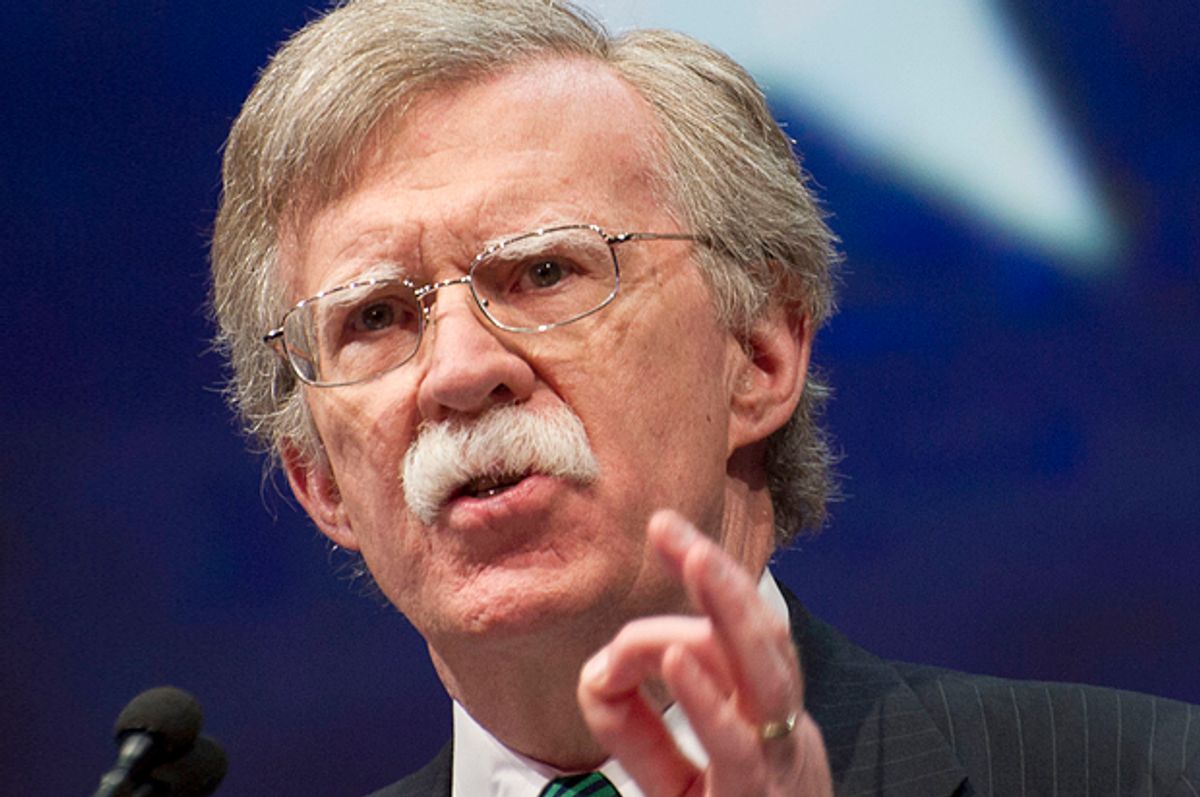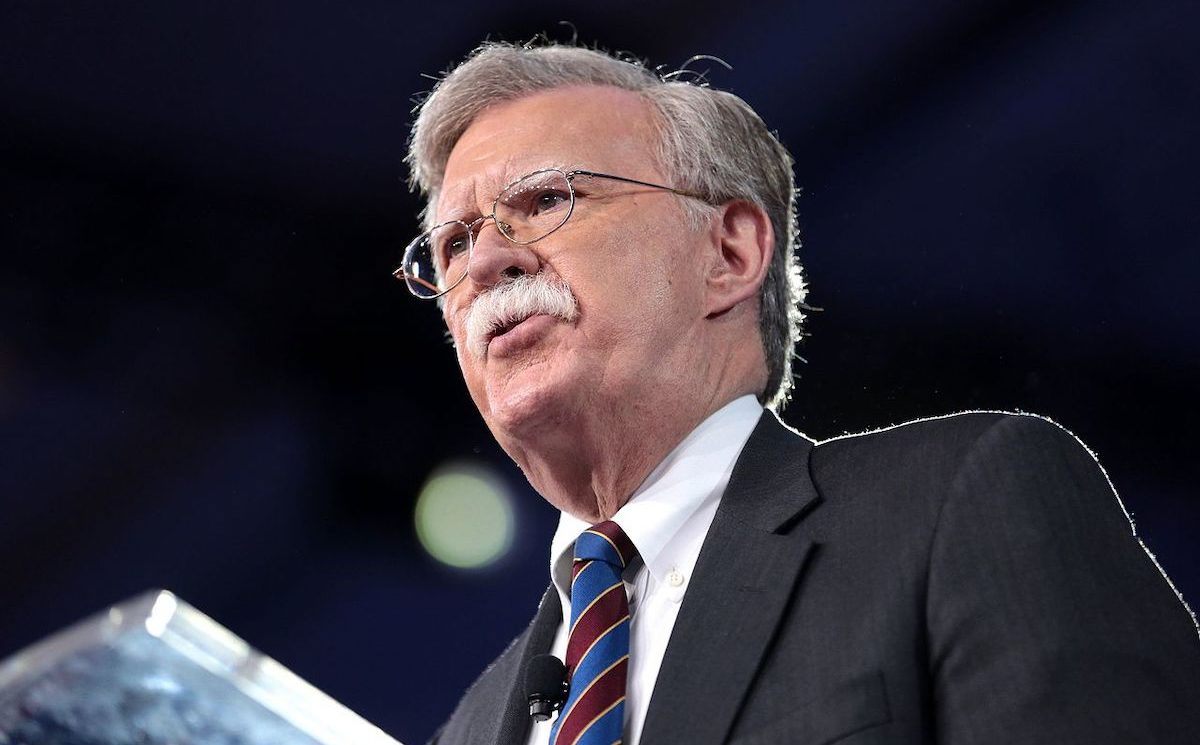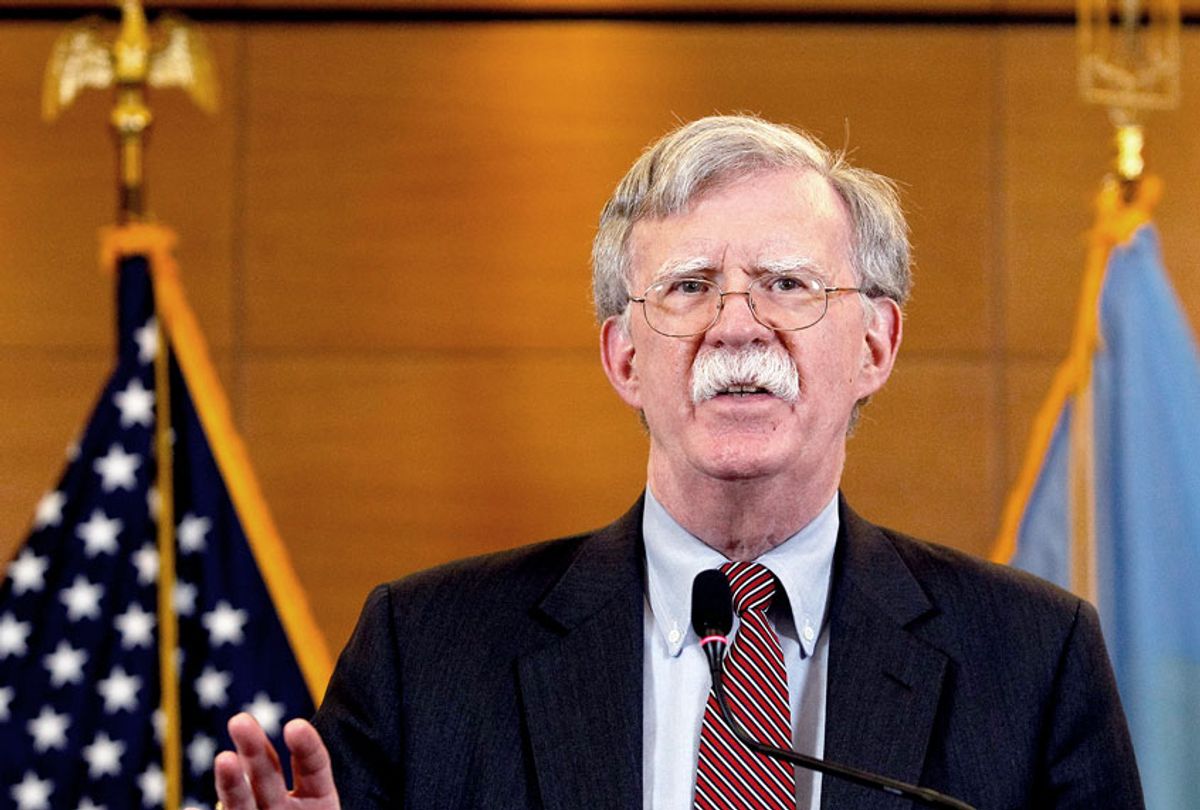When you think about figures who have played a part in American foreign policy and political discussions, a name that often comes up is John Bolton. He's someone who has spent many years working in government roles and offering his thoughts on big issues. For people who follow what happens in Washington, his background is pretty interesting, spanning different presidential times and involving some key decisions.
His path has taken him through various positions, from giving legal advice to acting as a country's representative to the world, and also sharing his views as a political commentator. It's a career that, you know, has certainly seen a lot of changes and moments that really grabbed people's attention. He's been a part of many important discussions, shaping how the United States interacts with other nations and how its leaders make choices.
Understanding his journey helps us get a better sense of the various viewpoints and influences that shape how things are done in the nation's capital. His involvement with different leaders and his own strong opinions have, in a way, made him a figure many people talk about, especially when it comes to how foreign policy gets put into action, or perhaps how it gets talked about in the media, too it's almost.
Table of Contents
- John Bolton - A Life in Public Service
- Personal Details and Bio Data - John Bolton
- What Was John Bolton's Role with President Trump?
- How Did John Bolton React to the Iran Strike?
- The Matter of Protection for John Bolton
- What Are John Bolton's Thoughts on Loyalty and Fealty?
- Criticism From and Of John Bolton
- John Bolton - A Look Back at His Career Path
John Bolton - A Life in Public Service
John Robert Bolton, who came into the world on November 20, 1948, has, you know, really made a name for himself as someone who works with legal matters, represents his country to others, gives advice to people in the Republican party, and shares his thoughts on political events. His career has seen him take on a good number of different kinds of jobs, showing a broad range of what he can do in the public eye. He’s been involved in discussions and decisions at a very high level, which is something that, in a way, shapes how the country moves forward.
From his beginnings, it seems he was drawn to areas where rules and how things are done really matter. Being an attorney means dealing with laws and legal arguments, which is a pretty precise sort of work. Then, becoming a diplomat means representing your country’s interests to other nations, which, you know, calls for a good deal of careful talking and understanding. These roles, you know, often involve a fair bit of quiet work behind the scenes, trying to build connections or resolve disagreements between different groups or countries.
His involvement as a consultant for the Republican party suggests he’s been a source of guidance and ideas for those within that political group. This kind of work often means helping shape what the party stands for and how it presents itself to the public. And, of course, as a political commentator, he’s someone who offers his views on what’s happening in the world of politics, sharing his thoughts with a wider audience, which is, in some respects, a very public way to engage with national discussions. All these different aspects of his professional life paint a picture of someone who has, apparently, been deeply involved in how the country operates and how its policies are formed, at the end of the day.
Personal Details and Bio Data - John Bolton
Here's a quick look at some personal details for John Bolton, based on what we know about his public record:
| Detail | Information |
|---|---|
| Full Name | John Robert Bolton |
| Date of Birth | November 20, 1948 |
| Profession | Attorney, Diplomat, Republican Consultant, Political Commentator |
| Key Role (Trump Admin) | 26th United States National Security Advisor |
| Service History | Worked for all Republican presidents since Ronald Reagan |
What Was John Bolton's Role with President Trump?
During the first time President Donald Trump was in office, John Bolton took on the important job of national security advisor. This position, you know, is a big one, meaning he was a key person giving advice on matters of national safety and how the country deals with other nations. It's a role that often involves being right there with the president, offering thoughts on some of the biggest challenges facing the United States, and that, is that, a very important part of the White House team.
He served in this capacity from April 9, 2018, until September 10, 2019. So, for a good chunk of time, he was right in the middle of things, helping to shape how the government approached various issues related to protecting the nation and its interests around the globe. This period, in a way, was quite active, with many international events unfolding, and his input would have been, apparently, a significant part of how those situations were handled. It's a job that demands a lot of quick thinking and a deep knowledge of world affairs, you know, pretty much all the time.
Before becoming the national security advisor, John Bolton had already spent a good deal of time working with other Republican presidents, going all the way back to Ronald Reagan. This means he brought a lot of past experience to his work with President Trump. His background, you know, gave him a broad perspective on how different administrations have handled similar situations, and that, in some respects, could be seen as a valuable thing for the president. He has, typically, been someone who holds strong views on foreign policy, and his time as national security advisor certainly put those views right at the forefront of government action, as a matter of fact.
How Did John Bolton React to the Iran Strike?
When President Donald Trump made the choice to strike Iran, John Bolton, who was at that time the national security advisor, showed his approval for the decision. He spoke about this on CNN with Kasie Hunt, explaining why he thought it was, you know, a good thing to do. This kind of public statement from someone in such a high-ranking position is, of course, something people pay close attention to, especially when it involves military actions.
His explanation, you know, really tried to make it clear why he believed the strike was the right move. For someone in his role, supporting such a decision means he saw it as fitting with the country's goals or protecting its interests. It's not every day that a top advisor comes out so openly to back a military action, so his words carried, arguably, a good bit of weight at the time. He had to, in a way, lay out his reasons for why he felt the action was justified, which is part of the job when you're helping guide national security choices.
This public show of support from John Bolton for the president's decision, you know, pretty much highlighted his own stance on how the United States should handle certain situations with other countries. It showed that he was, in fact, in agreement with the president on this particular matter, and that, in some respects, gave a glimpse into the kind of advice he was offering behind closed doors. His viewpoint on the strike was, apparently, quite firm, and he made sure to express that publicly, which is, well, something he often does.
The Matter of Protection for John Bolton
There was a point when the Trump administration decided to take away the Secret Service protection that had been given to John Bolton, who was no longer the national security advisor. This choice was made fairly quickly, within a day, according to people who knew about it. It’s a pretty unusual step, you know, for a former high-level official to lose that kind of personal security, especially so soon after leaving a sensitive role.
John Bolton himself confirmed this news on a social media site, X, on a Tuesday afternoon. He let people know that President Donald Trump had, in fact, ended his Secret Service detail. This kind of announcement, you know, really gets people talking, because it's not a common thing to happen. It suggests there might have been some strong disagreements or, perhaps, a breakdown in the relationship between the former advisor and the president.
The fact that this decision came so quickly after he left his job, apparently within hours of President Trump taking office for a new term, or rather, very soon after his departure from the administration, made it even more notable. It implies a rather swift action to remove that layer of security. For someone who has held such an important position, dealing with sensitive information and potentially making powerful adversaries, having that protection taken away is, you know, a pretty big deal, and it definitely caught the attention of many observers, as a matter of fact.
What Are John Bolton's Thoughts on Loyalty and Fealty?
John Bolton has shared his thoughts on what he believes President Trump looks for from the people he chooses to work in his administration. He said that President Trump might prefer "fealty" over "loyalty." This distinction, you know, is quite interesting and, in a way, tells us something about how he sees the president's expectations from his team. "Loyalty" usually means being faithful and supportive, but "fealty" often suggests a much stronger, unwavering promise of devotion, almost like a vow.
When he talks about "fealty," John Bolton is referring to a kind of sworn, complete allegiance, where someone's commitment is absolute and doesn't waver. This idea suggests that, in his view, President Trump wanted people around him who would stick with him no matter what, rather than just being generally supportive. It's a pretty strong way to describe what someone might expect from their staff, and it hints at a desire for very firm backing from those in key positions, you know, without any questions asked, so to speak.
This observation by John Bolton gives us, perhaps, a glimpse into the dynamics within the Trump administration, at least from his perspective. It suggests a certain kind of expectation for how people should behave and how they should relate to the president. The idea of "fealty" implies a very deep and personal bond of service, which, you know, is different from just professional loyalty. It's a subtle but important point that, in some respects, tells us a bit about the working relationships that were sought after, and that, is that, a rather specific kind of bond, apparently.
Criticism From and Of John Bolton
John Bolton, as a former national security advisor, was among a group of conservative figures who expressed concerns about how the U.S. President was behaving at the White House. This means he, you know, wasn't afraid to speak up and point out things he thought were not quite right. When someone who has been so close to the highest levels of government offers criticism, people tend to listen, because they often have a lot of inside knowledge, and that, is that, something people really pay attention to.
On the other side of things, there's also been some interesting discussion about John Bolton himself. A journalist named Jeremy Scahill, for example, pointed out something he saw as ironic: John Bolton, who had worked with President Trump, was now, apparently, backing him again. Scahill shared a public appearance of the former national security advisor on a social media platform, X, and added a comment about this situation. It seems he found it, you know, a bit surprising or contradictory that Bolton would be supporting Trump after their past dealings, which is, in a way, a common thing to observe in politics.
The irony that Scahill mentioned suggests that there might have been a perception of a shifting stance from John Bolton, or perhaps a complex relationship between him and President Trump. When people who have had public disagreements later seem to align, it can, you know, raise questions for observers. This kind of back-and-forth, with figures like John Bolton offering their views and others commenting on his positions, is, you know, pretty typical in the world of political commentary and, in some respects, makes for a lot of public discussion, at the end of the day.
John Bolton - A Look Back at His Career Path
John Robert Bolton, born on November 20, 1948, has had a long and varied career in public service. He is an American lawyer and diplomat, and he has also worked as a political commentator and a consultant for the Republican party. His journey through various roles shows a person who has, you know, been deeply involved in how the country runs and how it interacts with the rest of the world. He has, apparently, spent a lot of time thinking about and acting on matters of national importance.
One of his significant jobs was serving as the 26th United States National Security Advisor. This was from April 9, 2018, through September 10, 2019. In this role, he was, essentially, a key advisor to the president on issues related to the country's safety and its foreign dealings. Before this, he also held the position of the 25th United States Ambassador to the, well, the text cuts off there, but it implies a major diplomatic role, which is, you know, a pretty big deal in how a country represents itself globally.
His experience is quite broad, having worked for every Republican president since Ronald Reagan. This means he has, in a way, seen many different approaches to leadership and policy over the years. Ambassador John Bolton, as he is also known, has a deep familiarity with how Republican administrations operate. This extensive background means he brings a lot of historical context and understanding to any discussion about government and foreign policy. He has, you know, pretty much been a constant presence in certain political circles, offering his insights and views on a wide range of issues, and that, is that, something that has shaped his public image.
In short, John Bolton's career has been a long one, marked by his roles as an attorney, a diplomat, a political commentator, and a Republican consultant. He served as the 26th United States National Security Advisor to President Donald Trump from April 2018 to September 2019. He has worked for all Republican presidents since Ronald Reagan. He expressed approval for President Trump's decision to strike Iran. His Secret Service protection was ended by the Trump administration. He believes President Trump seeks "fealty" rather than "loyalty" from his team. Journalist Jeremy Scahill pointed out the irony of Bolton backing Trump, while Bolton himself was among conservative figures who criticized the U.S. President's behavior at the White House. He also believes President Trump is "conflicted" about U.S. involvement in Israel's operations.


